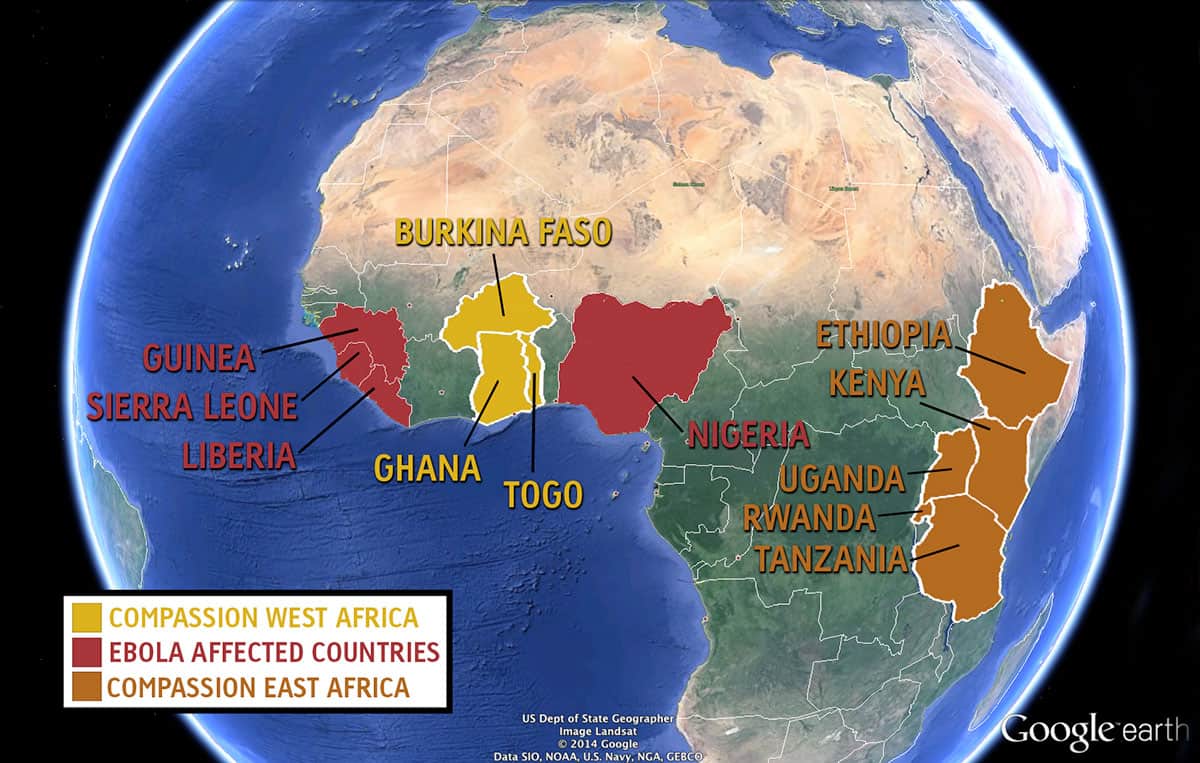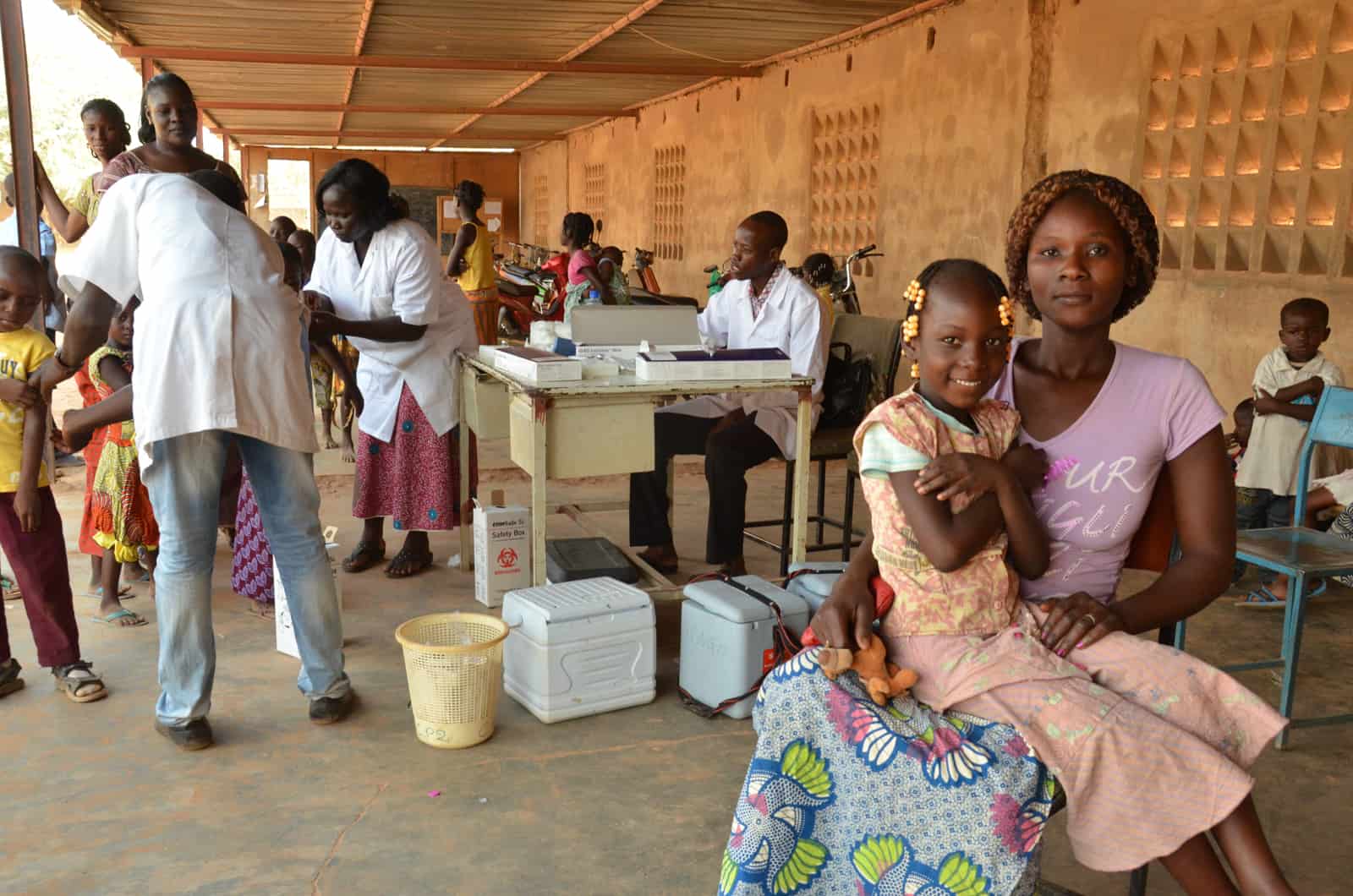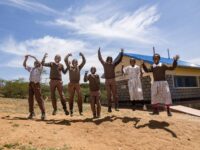“Are you sure you want to travel there right now? Couldn’t you get … Ebola?”
My friend hesitantly asked me this question before my recent trip to Uganda, in eastern Africa. I found a map and showed my well-meaning friend the actual distance from the epicenter of the Ebola outbreak to Uganda. It’s about 4,500 miles, which is well over the distance from California to New York.
My friend isn’t the only one to question the safety of traveling these days. Many members of the mainstream media are asking if it’s safe to travel to Africa right now. In a culture where fear sells, it’s easy to catastrophize, fret and worry.
But what if we took a moment to look past the hype and fear and studied some of the actual facts about Ebola?
The recent Ebola outbreak in West Africa has killed more than 4,400 people. The countries most severely affected are Guinea, Sierra Leone and Liberia with a few reported cases in Nigeria.
To date, there have been no reported cases in Burkina Faso, Ghana or Togo, where Compassion ministers to almost 125,000 children through more than 500 church-based child development centers.

And how does one contract Ebola? Contrary to what you may have heard, it is not an airborne disease. It is transferred by bodily substances. I’m struck by something that continually comes up with the doctors and disease experts when they’re asked about the threat of an Ebola outbreak on U.S. soil. They all say something similar to: “We don’t need to worry because we [the USA] are very different from West Africa.”
Very different indeed.
For instance, for the few cases here on U.S. soil, victims have been treated in highly isolated areas and most survive. But in countries like Guinea, Sierra Leone and Liberia, there are not enough aid workers or hospitals to treat all of the patients or give the proper care.
Even burial traditions have put many West Africans at risk. For example, family members will often embrace their dead loved ones for extended periods of time, thus transferring the virus.
It is simple for us, with our Western reactions and our hand sanitizer, to say that touch is not only unnecessary, but dangerous. But that goes against the very culture of many West African countries. That Ebola could destroy the beauty of relational touch demonstrates that the virus destroys more than the physical — it breaks people down even at the emotional level.
We give thanks to God that at this time, no Compassion staff, assisted children or immediate family members in West Africa have been reported infected by Ebola. We will, however, diligently continue our efforts in Burkina Faso, Togo and Ghana toward prevention education.
For the past several months, Compassion has partnered with national health agencies to equip staff, church partners, and children and caregivers themselves with knowledge about the Ebola virus. Compassion Health Technical Advisor and public health expert Terry Laura says,
Sponsors should not be concerned. We have a wonderful team of health professionals in each country who have worked with local Ministry of Health staff and put together educational materials and a training plan to help educate our staff and beneficiaries on the best way to keep themselves and their families healthy should the virus cross into any of our three West African countries.

Sidney Muisyo, Compassion’s Vice President of the Africa Region, said this:
While the Ebola virus is one of the most deadly diseases — with a fatality rate of up to 90 percent according to the WHO — it is relatively easier to contain by curtailing the infection cycle. It spreads through direct contact with infected blood and bodily functions, including also indirect contacts with contaminated environments.
Ebola fires up our global imagination of the worst-case scenarios — it would be nothing short of catastrophic if Ebola was not contained. Nonetheless, we must still keep in mind that between 470,000 to 790,000 children in Africa still die every year due to malaria, even though it is also a relatively easier disease to contain. While we continue to monitor the threat of Ebola in our ministry countries in West Africa, Compassion has been responding to diseases like malaria with great effectiveness and we have been doing this work over the long haul. We still need to raise resources for this silent killer.
Sure, even with the distance, I realize that we live in a world that’s feeling smaller and smaller. If we wanted to, we could find enough fear to never venture beyond our doorsteps.
But I want more from life. I want to live inside the perfect will of God. I want to take the opportunities He offers. Certainly, to be wise, but more than that, I desire to fully live and invest in the lives of others. I won’t let fear rob me of that.







1 Comment |Add a comment
Thank you, Katy, for your courageous heart for the Lord’s work, and for bringing the fear, possibly the greatest tool of evil, into the light for each one who loves to examine. Your statement that each of us, if we chose, could find enough fear to keep us bound to our own doorsteps, is eloquent truth. Jesus watch over your journey.